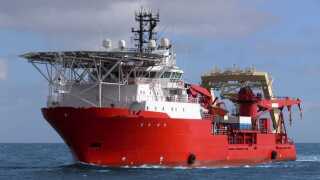On March 14, 2024, undersea cable cuts occurred off the coasts of Cote d’Ivoire and Senegal, affecting connectivity on the West African coast. The cables included MainOne, SAT3, WACS and ACE.
A report by IT service management firm, Cloudflare highlighted at least six counties were still suffering from the outrages. It is estimated that it will be over a month before repairs are fully complete.
During the West Africa Telecommunications Regulatory Assembly (WATRA) annual general meeting in Sierra Leone last week, the executive vice chairman of the Nigerian Communications Commission (NCC) Dr. Aminu Maida expressed concern about the impact on the global economy if a coordinated approach to ensuring connectivity was not implemented.
"The impact of events like the cable cuts highlights the need for a coordinated, multilateral approach to protecting shared infrastructure across our member nations.
“Securing telecom infrastructure is paramount for fostering Foreign Direct Investment (FDI). The reliability and resilience of telecommunications networks are crucial factors that investors consider when evaluating regional opportunities.
“By ensuring the security of these vital assets, we can attract more investment, spur economic growth, and enhance our competitiveness on the global stage. A secure telecoms infrastructure not only facilitates efficient communication and connectivity but also signals a commitment to safeguarding critical assets essential for business operations.
"This assurance can significantly boost investor confidence and create a conducive environment for sustainable economic development," he said.
Maida proposed “the urgent need to set up a framework for joint monitoring, risk mitigation, and emergency response procedures for the submarine cables that pass through the sub-region.
“Further to this, we recommend that the WATRA Working Group on Infrastructure expand its mandate to spearhead the development of a comprehensive strategy to safeguard the subregion’s telecommunications networks and associated infrastructure thereby proactively bolstering resilience through improved disaster response protocols to better insulate ourselves from future disruptions.”





